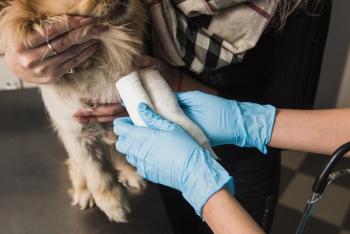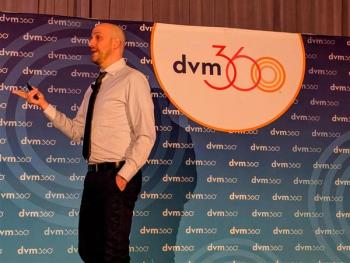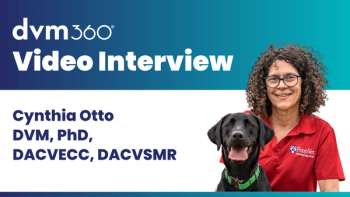
UM study tracks emergency cases to assess outcomes, best practices
St. Paul, Minn. - What resources will be needed and what therapies will work best in future animal-trauma centers?
ST. PAUL, MINN. — What resources will be needed and what therapies will work best in future animal-trauma centers?
Those are just two of the questions veterinarians are hoping to answer in a new, multi-institutional study.
"It's a collaborative effort," says Kelly Hall, DVM, Dipl. ACVECC, who is leading the study at the University of Minnesota (UM) College of Veterinary Medicine's Animal Trauma Center. "We want to, as a group, work together to make sure we are providing the best care and learning from each other."
The study aims to use the human trauma center model to create a new template for animal-trauma centers, she says. A group of veterinarians from a number of institutions are working together to identify what that template should look like, but Hall says they know they want to be able to quickly get severe trauma cases the care they need. Once the group defines the animal-trauma center of the future, Hall says they would like to identify 10 or 20 lead centers across the country that embody that image.
The second piece of the study deals with data collection.
Hall and other criticalists at UM's Animal Trauma Center have been entering data on canine-only trauma cases into an electronic medical-record system since late June.
Details on more than 50 cases have been recorded so far, Hall says. They are most interested in gathering data on cases including date, time and cause of injury, time of presentation to veterinarians, whether surgery was required, other treatments used, and if specialty teams were required.
While the data collection is still in the early stages, Hall hopes the data gathered at the end of the study's eight-week cycle will give researchers a sense of outcomes. The team's goal is to evaluate resource utilization and best treatment outcomes based on the type of injury.
Other universities participating in data collection include the Ontario Veterinary College at the University of Guelph, the University of Pennsylvania School of Veterinary Medicine and Tufts University Cummings School of Veterinary Medicine. The ultimate goal is to establish ongoing data collection among trauma centers at these schools and beyond.
"Our vision with defining trauma centers is that we get to a point someday where we have a trauma registry," she says.
At UM, the research team is working to track its own internal data on the 1,000 or so cases veterinarians see each year. Since October 2010, the Animal Trauma Center has been documenting emergency cases for both dogs and cats.
The research team hopes to provide more detailed findings early next year, Hall says.
Newsletter
From exam room tips to practice management insights, get trusted veterinary news delivered straight to your inbox—subscribe to dvm360.





